- Home
- / CL Answers
- / Which supplements and lifestyle changes improve sleep, and which cause insomnia?
www.consumerlab.com/answers/could-supplements-be-causing-my-insomnia/supplements-causing-insomnia/
Save to favorites
This feature is restricted to active members.
Join now to save favorites and get all member benefits, including over 1,400 reviews.
Join NowAlready a member? Sign in here.

Our Members Asked:
Which supplements and lifestyle changes improve sleep, and which cause insomnia?

Answer:
Supplements including melatonin, tart cherry juice extract, L-tryptophan and 5-HTP, L-theanine, CBD (cannabidiol), ashwagandha, glycine, saffron, valerian, and possibly magnesium, lemon balm (e.g., Relissa and Cyracos), or Prevagen may, to varying degrees, improve sleep. Various lifestyle modifications, including avoiding the use of digital devices before bedtime and possibly listening to music before bed, might also help.
On the other hand, some supplements, especially energy drinks, weight loss supplements, and cocoa products, as well as red yeast rice, garlic, policosanol, DHEA, chromium and high doses of vitamin D, vitamin b-12, potassium and coenzyme Q10 might interfere with sleep. In some cases, adjusting dosing or timing of dose may help.
What you eat may also affect your sleep.
Sign in as a member for more information, including evidence about multivitamins, fish oil, GABA, calcium, vitamin K, prebiotics, protein supplements, and cucumber extract (Q-actin), as well as traditional remedies for insomnia such as drinking chamomile tea or inhaling lavender oil.
In addition the results of its expert testing, ConsumerLab uses only high-quality, evidence based, information sources. These sources include peer-reviewed studies and information from agencies such as the FDA and USDA, and the National Academy of Medicine. On evolving topics, studies from pre-print journals may be sourced. All of our content is reviewed by medical doctors and doctoral-level experts in pharmacology, toxicology, and chemistry. We continually update and medically review our information to keep our content trustworthy, accurate, and reliable. The following sources are referenced in this article:
- Cases, Med J Nutrition Metab 2010
- Chen, J Am Geriatr Soc 2021
- Di Pierro, Nutrients 2024
- Gangwisch, Am J Clin Nutr 2019
- Hieu, Phytother Res 2019
- Kaur, StatPearls 2022
- Lloyd, Front Nutr 2025
- Pierre, Platelets 2005
- Schwartz, Perioper Med (Lond
- Segal, CMAJ 2006
- Shinomiya, Biol Pharm Bull 2005
- Srivastava, Mol Med Report 2010; McKay, Phytother Res 2006
- Trabace, J Ethnopharmacol 2015
- Tu, Addict Behav 2023
- Viola, Planta Med 1995
Join today to unlock all member benefits including full access to all CL Answers and over 1,400 reviews.
Join NowAlready a member? Sign In Here.
Join now at www.consumerlab.com/join/
Agree to Comment Terms
Please abide by the following:
- If you make a statement of fact, such as whether a type of treatment does or does not work, state your basis -- such as personal experience or a published study.
- If you make a positive or negative comment about a product, note whether or not you have a financial interest in the product or in a competing product.
- Please be respectful in your tone.
- Please do not submit any type of HTML markup or scripting as it will not be accepted, nor will posts that exceed 2,500 characters.
For your privacy, only your first name (from your account) followed by a random number will appear with your comment. Your last name and email address will not be displayed.
Your comment has been submitted
We will review your comment before it is posted.

Related Reviews (6)
Latest Research Updates (Clinical Updates)
Cucumber Extract for Sleep?
May 22, 2025
Lemon Balm for Sleep?
December 09, 2024
Casein for Sleep?
November 18, 2024
Did Lactium, a branded casein, help people with insomnia fall asleep faster or improve sleep quality? See what a recent study found in the Casein section of the Protein Supplements Review, which includes our Top Picks among protein powders.
Also see: Which supplements and lifestyle changes improve sleep, and which cause insomnia?
Magtein for Sleep?
September 09, 2024
Also see: Which supplements and lifestyle changes improve sleep, and which cause insomnia?
Best Source of Collagen?
September 09, 2024
Chamomile and Bleeding Risk?
January 23, 2024
Smartphones & Sleep
August 04, 2023
Does turning off your smartphone a few minutes before bedtime help improve sleep quality? See what a recent study showed in the Lifestyle modifications section of our article about improving sleep.
Is Chamomile Tea Safe?
November 18, 2022
A CL member asked if chamomile tea is safe to drink. It’s generally safe in moderation, but there are concerns with drinking large amounts and with regular consumption during pregnancy. For details, see the Chamomile tea section in our CL Answer about supplements for improving sleep.
Music for Better Sleep
August 19, 2022
Can listening to music before bedtime improve sleep quality? Find out what research suggests in our updated CL Answer about supplements and lifestyle interventions for sleep.
Glycine for Sleep?
August 02, 2022
Does taking glycine improve sleep and, if so, at what dose? Find out in our CL Answer about supplements for insomnia.
Chamomile for Sleep?
July 26, 2022
A CL member asked us if chamomile tea is helpful for insomnia. See what research suggests, and learn about potential interactions with chamomile, in our updated answer to the question: What are the best supplements for insomnia? Are there any supplements that interfere with sleep?
Related CL Answers (3)

Related Content
Join over 100,000 Members
Find the best products with instant access to our latest tests & reviews of over 1,400 health products.
Save money by finding high-quality products at lower cost.
Stay safe with the latest clinical findings, warnings, and expert answers.
Suggest products to test.
Stay informed with our e-newsletter.
Ratings of ConsumerLab

The "Updated" date indicates when new information was most recently added to this article. In the full article, the newest information is highlighted in yellow.
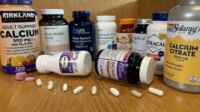
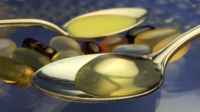
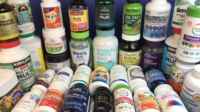

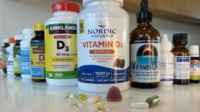
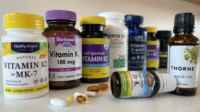
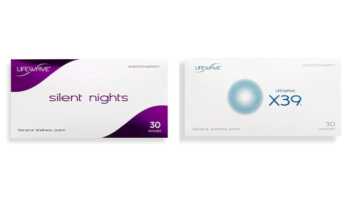

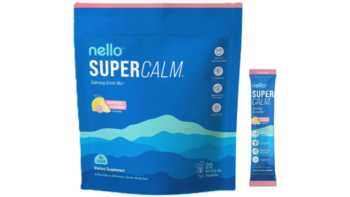





Submit your comment
This feature is restricted to active members.
Join now to add comments and get all member benefits, including over 1,400 reviews.
Join NowAlready a member? Sign in here.